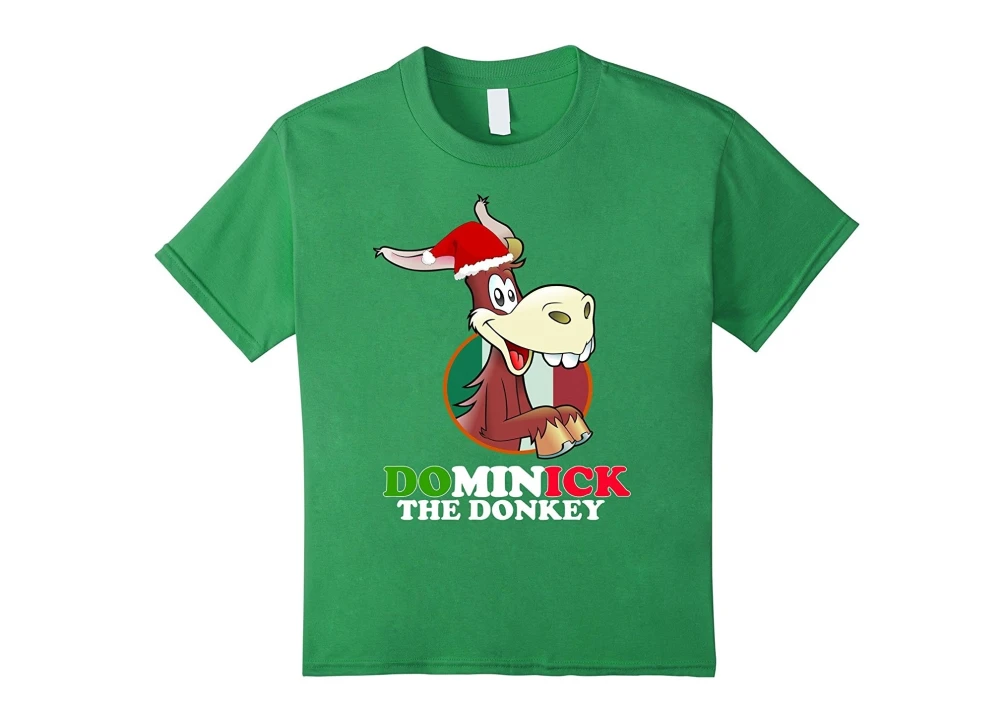Ay, Jing-a-di-jing hee haw hee haw: it's Dominick the Donkey! What does Dominik the Donkey have to do with the Italian language? Nothing you would say. But “è qui che casca l’asino!” - the donkey falls here. Wait, what does that mean? Well, my friend that’s what explaining to you today.
Apparently, donkeys are a very popular animal when talking about Italian expressions: some metaphorically, others more concretely. To begin with, “asino” or “somaro” – donkey in English – are both very common words in Italian that can be used pretty much interchangeably. Those two words do mean donkey but as in English they also have a secondary meaning that is “to be ignorant, stupid”. If you said something very wrong or completely ridiculous at school, back in the old days, the teacher would put “orecchie d’asino” – donkey’s ears – on your head, by definition, the symbol of ignorance, and have you sit in the back corner of the room. Yup, the old methods! I bet you aren’t nostalgic at all. “L’asino non conosce la coda se non quando non l’ha più” – a donkey doesn’t know it has a tail until t doesn’t have it anymore – always referring to its ignorance.
Then, we have a wide range of expressions coming from this secondary meaning of the words “asino.” For example, “meglio un asino che un dottore morto,” literally it’s better to have a donkey alive than a dead doctor, which is supposed to mean something like this: don’t study yourself to death! We prefer you alive and a little ignorant than dead. Fair enough, don’t you think?! And also, “far credere che gli asini volino” – to have someone believe that donkeys fly – different animal from the English expression, but same meaning. A “ponte dell’asino” – the donkey’s bridge – is an expression used when explaining something to someone who is not an expert in a subject that is quite abstract that refers to the use of more average terms.
But then, “asino” can also mean someone very stubborn or a little rude, then we have “pare un asino calzato e vestito” – they look like a dressed and shoed donkey – use to refer to someone rude, ignorant, but also someone who uses insulting titles; “raglio d’asino non giunse mai il cielo” – the bray of a donkey never reached the sky – that means that the slander and the curses of an ignorant or evil person have no real effects. But a donkey is also someone ungrateful, in this case you can say “a far bene agli asini si ricevono calci” – when you do some good to a donkey you only receive kicks.
And the most concrete and practical is maybe “gli asini davanti, i cavalli dietro” – donkeys in the front, horses in the back - which is a piece of advice for farmers and refers to the fact that donkeys never want to go ahead, forwards when used to transport something while horses kick a lot, therefore it’s better to avoid being behind them.
Some expressions are mostly cultural: “fare come l’asino del pentolaio” – to be like the pan seller – which means to stop very frequently, because the pan seller’s donkey had to stop at every door of each house. Or “calcio d’asino” – donkey’s kick – which is a vile act of who “kicks” or insults an important and powerful person, who they always worshipped, only when they are in a position of weakness or when they have already lost their importance and power. The latest goes back the fable of “the donkey and the lion” in which the donkey kicks the lion who is already dying to avenge an old offence. And talking about lions we have “al ragliar si vedrà che non è un leone” – when braying it will be obvious it’s not a lion – meaning that by the results people will understand how little that person is capable of.
Donkeys do not only have negative connotations, though, they are also seen as hard working creatures: “fare come l’asino che porta il vino e beve l’acqua” – to be like a donkey which carries the wine, but drinks water – means to be a hardworking person…but who is also exploited. The people of a country is said to be like a donkey: “come il popolo è l’asino: utile, paziente e bastonato” – the folk are like the donkey: useful, patient, and beaten…maybe it’s not the best example…
But the most famous and remembered expressions are those: “qui casca l’asino” – here, the donkey falls – the expression you read in the introduction, which refers to the difficulties that obstacle and “make us fall;” “il bue che dice cornuto all’asino” – the ox who calls the donkey horned – simply translatable with “the pot calling the kettle black;” and “asino di natura chi non sa leggere la propria scrittura” – a natural donkey is the person who can’t read their own handwriting – well this one is pretty self-explanatory…
Donkeys are such cute creatures, but if I were you, I would not take it well if someone called me one.




